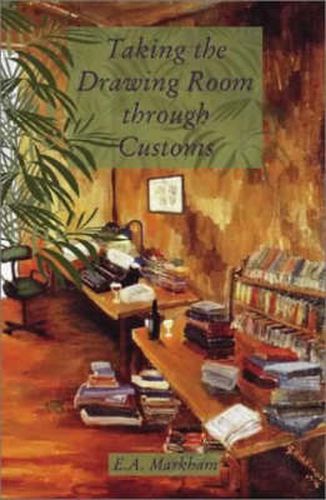Readings Newsletter
Become a Readings Member to make your shopping experience even easier.
Sign in or sign up for free!
You’re not far away from qualifying for FREE standard shipping within Australia
You’ve qualified for FREE standard shipping within Australia
The cart is loading…






The stories in this collection have as their core the motion of travel, primarily from Montserrat to Britain, but also to continental Europe. They ask, ‘What have we brought with us? What do we find?’ For Markham the drawing room is both the repository of memories, of family network, and the riposte of a West Indian from a society that had its own social graces but finds itself in a Britain that harbours the stereotype that nothing of value has been brought. Each of the stories has its own crafted completeness, whether in the observant humour of ‘The Pig Was Mine’, the bleakness of ‘Skeletons’, the audacious mythologising of ‘A Short History of St. Cesaire’ or the absurdist magical realism of ‘Digging’. But within the great variety of tone, there are recurrences of character, alter-egos and location. Indeed, while the stories can be read in any order, the book can be read as a modernist narrative, with each episode being part of a whole. E.A. Markham consistently describes himself as a West Indian, not a Black Britain, and it is a distinctly Montserratian eye, ever alert to masks and trickster strategies, that he casts over the Britain he knows so well.
$9.00 standard shipping within Australia
FREE standard shipping within Australia for orders over $100.00
Express & International shipping calculated at checkout
The stories in this collection have as their core the motion of travel, primarily from Montserrat to Britain, but also to continental Europe. They ask, ‘What have we brought with us? What do we find?’ For Markham the drawing room is both the repository of memories, of family network, and the riposte of a West Indian from a society that had its own social graces but finds itself in a Britain that harbours the stereotype that nothing of value has been brought. Each of the stories has its own crafted completeness, whether in the observant humour of ‘The Pig Was Mine’, the bleakness of ‘Skeletons’, the audacious mythologising of ‘A Short History of St. Cesaire’ or the absurdist magical realism of ‘Digging’. But within the great variety of tone, there are recurrences of character, alter-egos and location. Indeed, while the stories can be read in any order, the book can be read as a modernist narrative, with each episode being part of a whole. E.A. Markham consistently describes himself as a West Indian, not a Black Britain, and it is a distinctly Montserratian eye, ever alert to masks and trickster strategies, that he casts over the Britain he knows so well.